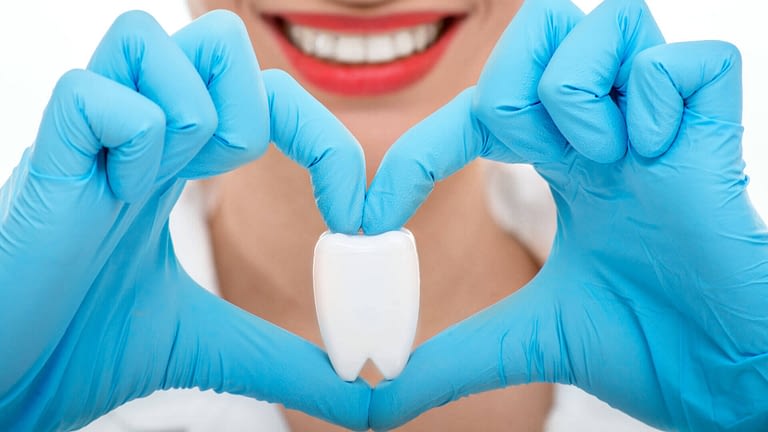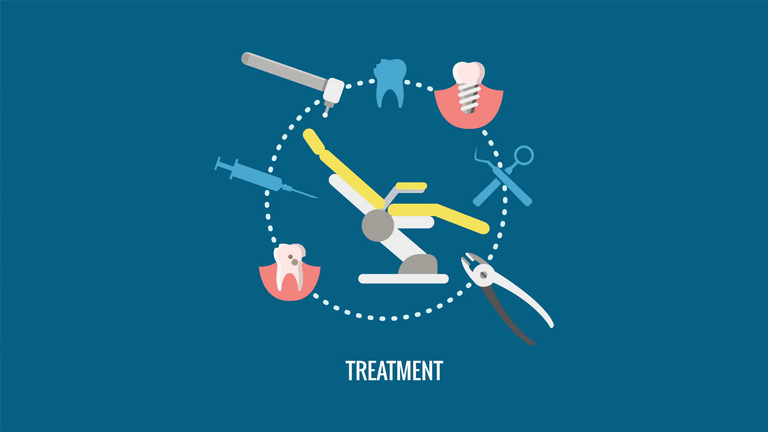All about Root Canal Treatment
A root canal treatment is a dental operation in which the damaged or diseased pulp of a tooth is replaced with a filling. The pulp, with its veins, tissue fibers, and nerves in the center hollow of the tooth, is the tooth’s lifeblood. Endodontic therapy is the term for the technique that replaces the damaged or diseased pulp.
Endodontic therapy normally has a high success rate. About 90% to 95% of persons who get root canal therapy can anticipate a functioning tooth as a result of the procedure. If you maintain proper dental hygiene and take good care of your teeth, the treated tooth should survive a long period. Of course, no therapy or replacement can compare to the durability of a healthy tooth. In this article, we will give all the information about root canal treatment.
When is a Root Canal Treatment Necessary?
A root canal treatment might save a tooth that has become infected or damaged. By decay, repetitive dental work, wear and tear, gum disease, broken fillings. Moreover, a tooth injury, the tooth may have gotten infected or injured. Bacteria can proliferate within the tooth if the dental pulp is injured. This can result in an infection or an abscess, which is a pus-filled pocket near the tip of the tooth’s root.
It is critical to saving your own tooth if at all feasible. Naturally, biting and chewing with your own tooth is easier with it than with an artificial tooth. When a tooth is lost, it might lead to other problems in the mouth. More complicated dental operations are typically required to replace a missing tooth with an artificial one. Root canal treatment is frequently the most effective option to save a tooth.
What Happens in the Procedure?
To evaluate the geometry of the root canals and whether there is any infection in the bone around the tooth, the dentist first takes an x-ray of the tooth. To avoid contamination, a sheet or rubber called a rubber dam is put over the tooth. You’ll be able to take regular breaths again.
Before drilling a hole in the tooth to extract the pulp, the dentist will numb the region around the tooth using a local anesthetic. Depending on the tooth, there are one to four canals. The canals will be cleaned, shaped, and disinfected in their entirety. The dentist may need to schedule many sessions to clean and shape the hole within the tooth before installing a sterile filling. Between treatments, the tooth will be sealed with a temporary filling to safeguard it.
They will fill the canal gap with a substance called gutta-percha once the therapy is completed. To reinforce the tooth, they may also place tiny support into the root canals. If required, they may place a prosthetic crown on the tooth. Because root canal treatment takes longer, it might be more unpleasant than a regular filling, although it is seldom painful.
How Painful is the Root Canal Treatment?
One of the most common concerns about root canal treatment is pain. However, treatment performed by a dental surgeon will be more like to rather painless. The Source of the pain is the infection, not the treatment. The therapy does not create pain; rather, it aids in its relief.
The dental surgeon will numb the tooth and surrounding region using a local anesthetic to make the process less painful. Tenderness is to be expected after therapy. Prescription medicines, such as codeine, are available if needed. An antibiotic may be prescribed by the dentist to treat or prevent infection.
What Should You Do After Root Canal Treatment?
When the numbing medicine wears off, your teeth and gums may feel painful. It’s also possible that your gums will swell. Most dentists will prescribe over-the-counter pain relievers. If the pain becomes unbearable or persists for longer than a few days, you should contact your dentist for solutions.
The day after the treatment, you should be able to resume your usual routine. Avoid biting on the injured tooth until it has been properly filled or a crown has been set on top of it. In Smile Team Turkey, we can help you with dental crowns. We also have expertise in the area of dental veneers and smile makeovers as well. You’ll see your regular dentist a few days after the root canal. X-rays will be taken to ensure there is no infection. They’ll also replace the temporary filling with a permanent one.
Restorative dentistry includes root canals. The majority of people who have the procedure may expect outstanding results for the rest of their life. However, how well you care for your teeth determines how long the advantages last. Cleaning and flossing your restored tooth is just as essential as brushing and flossing the rest of your teeth.
You can read our previous article from the following link https://dentalguideturkey.com/bruxism/.








